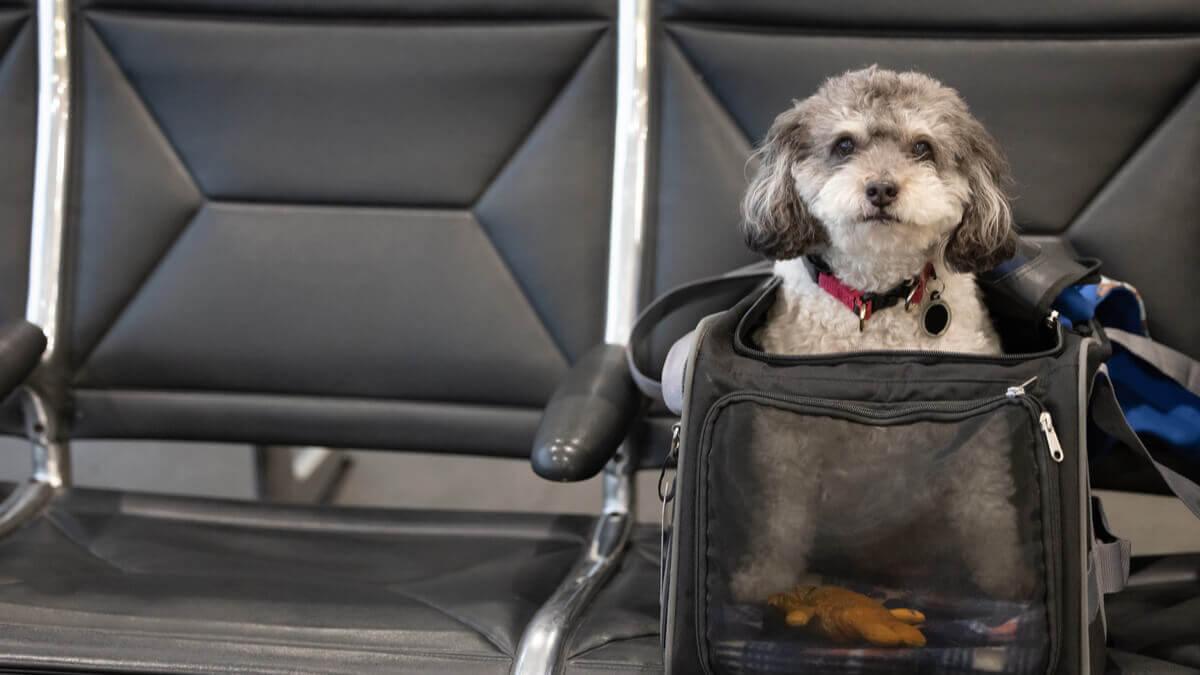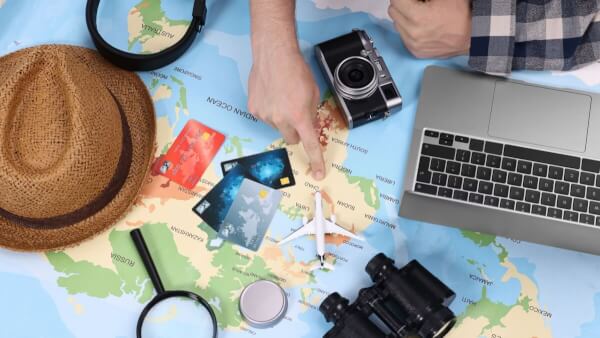Complete Guide to Last-Minute Travel Deals for Australians
Discover how to snag amazing last-minute travel deals from Australia. Explore flights, hotels, car hire & packages with Last Minute.

Navigating the process of flying with your furry companion is difficult if you don’t know where to look. We have compiled the key things you need to know if you want to travel with your pet on Virgin Australia. This includes answering if it’s even possible and what you need to know before jumping right in to booking your pets journey.
| 💸 Hold 40+ currencies in your account and spend at the mid-market exchange rate with the Wise card while abroad. |
|---|
Learn more about the
Wise Account
Unfortunately, Virgin Australia predominantly offers pet travel on their domestic service routes. If you need to move your pet internationally, you’ll have to use an approved International Pet and Animal Association (IPATA) provider or opt to use a different service such as Qantas airlines.¹
Unlike simply booking a ticket and catching your flight at the designated time, pet travel requires a little more preparation. Here is a breakdown of how domestic pet travel works with Virgin Australia.
Before you book anything, the first thing you should check is if your pet is eligible to fly. This will help make sure you can pursue the right help to get your pet to where it needs to go. The basic eligibility requirements include the following.¹
There are a few health conditions that don’t restrict your pet from travelling, but require being signed off by a certified vet to get the all clear. These include¹:
If your pet is of any of the above, they must have the vet certificate within 2 weeks of the travel day.
| Read more: Qantas pet travel |
|---|
Each state in Australia has different rules when it comes to the movement of animals including pets. This includes restrictions on other animals travelling outside of a dog and cats. For cats or dogs in particular, if your destination is Tasmania, you’ll need to ensure your pet has received treatment for Hydatids Tapeworm prior to arrival. It’s important to keep up to date with state-based requirements for animal travel if you are anticipating a move at any point with your pet.¹
Once you’ve determined that your pet can meet the eligibility requirements to travel and safely arrive in their new home state, Virgin Australia requires you to organise all pet travel with a commercial pet travel company.¹
As much as we’d love to say that your pet will be able to join you in the cabin, this is not the case on any domestic flight. All pets are moved using the cargo hold, and are categorised as freight.¹ The only exception to this rule is if you have a service or assistant dog that meets the strict conditions to carriage for Virgin Australia flights.²
Virgin Australia only allows for dogs and cats to travel under their pet travel requirements due to container restrictions. There are also some caveats around certain breeds that can and cannot travel.¹
These types of animals are commonly identified as being snub-nosed or flat-nosed. Virgin Australia has a strict policy that any brachycephalic breeds including cross-breeds must be organised through an approved pet travel specialist that specialise with transporting these breeds.
Some examples of brachycephalic breeds in cats and dogs include but not limited to¹:
There are certain dog breeds that Virgin will refuse to carry. These include breeds that are either banned for import under Australia law or are domestic and non-domestic hybrids of certain wolf crosses. These breeds include¹:
This travel restriction extends to crossbreeds of these breeds.If you have another type of pet, you’ll have to organise their travel through an animal transportation supplier.
As it is a requirement to book your pet travel through a commercial pet transport company, Virgin Australia doesn’t list any fees on their website.¹
To sum up all of the above, your pet will be able to travel domestically on a dedicated Virgin Australia flight when they¹:
Once you meet the formal requirements, you also can’t forget to prepare your pet for their big adventure. Here are some ways you can prepare your pet for air travel.¹
Avoid having your pet booked in peak temperature periods. This includes early morning or late evening flights in winter, or midday times for summer. Depending on what your pet is used to in terms of weather, it’s important to try to guide their booking around their comfort.
It is not recommended to sedate your pet before they travel unless it is recommended by a vet. Virgin Australia warns that if your pet is sedated at the time of their flight, it is at your own risk.
The best way to feel confident that your pet will have the best possible journey they can is by crate training them before they fly. It is preferable to train them in the crate they will be flying in. It's also always good to include a water bowl to stop them from becoming dehydrated and adding in their favourite toys or a cushion.
There is a reason that Virgin Australia requires you to book your pet’s travel through a pet travel specialist. A pet travel specialist is an expert in navigating all the rules and regulations, while working with all different breeds to make sure your pet's trip is as stress free as possible.¹
Not every flight route is available to fly your pet on. Virgin Australia has a dedicated list of ports that your pet can be flown into or flown out of.³
This also means if you fly your pet unaccompanied by you, you will have to drop off or pick up your pet from these locations if it is not otherwise organised by your booked pet travel company.
If you are in charge of your pets drop off or they are accompanying you on your own scheduled flight, the pet check in closes 90 mins before scheduled departure.³
Virgin staff endeavour to keep the cargo hold as comfortable as possible for your pet. However the cargo hold can be prone to noise during the airport ground staff loading and unloading cargo.¹
With a Wise Account you can hold money in 40+ currencies and spend it in 150+ countries. Whenever you exchange currencies it’s done using the mid-market rate with a transparent conversion fee shown upfront.
To make everyday spending easier you can order a Wise Debit card for your Wise Account and generate virtual cards as needed. If you have the local currency in your Wise Account the Wise card will use it and charge no fees. If you don’t, it uses smart technology to auto-convert your money at the mid-market rate, for a conversion fee.
Join over 16 million customers currently using Wise. It’ll only take a few minutes to register and see what’s inside.
Register your Wise account
in minutes
Please see Terms of Use for your region or visit Wise Fees & Pricing for the most up to date pricing and fee information.
Sources:
Sources checked on: 4th March 2024
*Please see terms of use and product availability for your region or visit Wise fees and pricing for the most up to date pricing and fee information.
This publication is provided for general information purposes and does not constitute legal, tax or other professional advice from Wise Payments Limited or its subsidiaries and its affiliates, and it is not intended as a substitute for obtaining advice from a financial advisor or any other professional.
We make no representations, warranties or guarantees, whether expressed or implied, that the content in the publication is accurate, complete or up to date.

Discover how to snag amazing last-minute travel deals from Australia. Explore flights, hotels, car hire & packages with Last Minute.

Discover the destinations where Australians can travel without a visa in our guide to visa-free countries, visa on arrival options, and ETA.

Review of the best Australian cards offering airport lounge access: credit cards, premium debit cards, and travel cards with lounge benefits.

Find the best ways to send luggage abroad with our quick guide on services, costs and tips to ensure your items arrive safely and efficiently overseas

Learn about the Carnival Cruises Sail & Sign Card, its features, setup and tips for managing onboard expenses. Have fun on your cruise and spend with ease.

Looking to move back down under after years living overseas. Here's what you need to know about moving back to Australia.